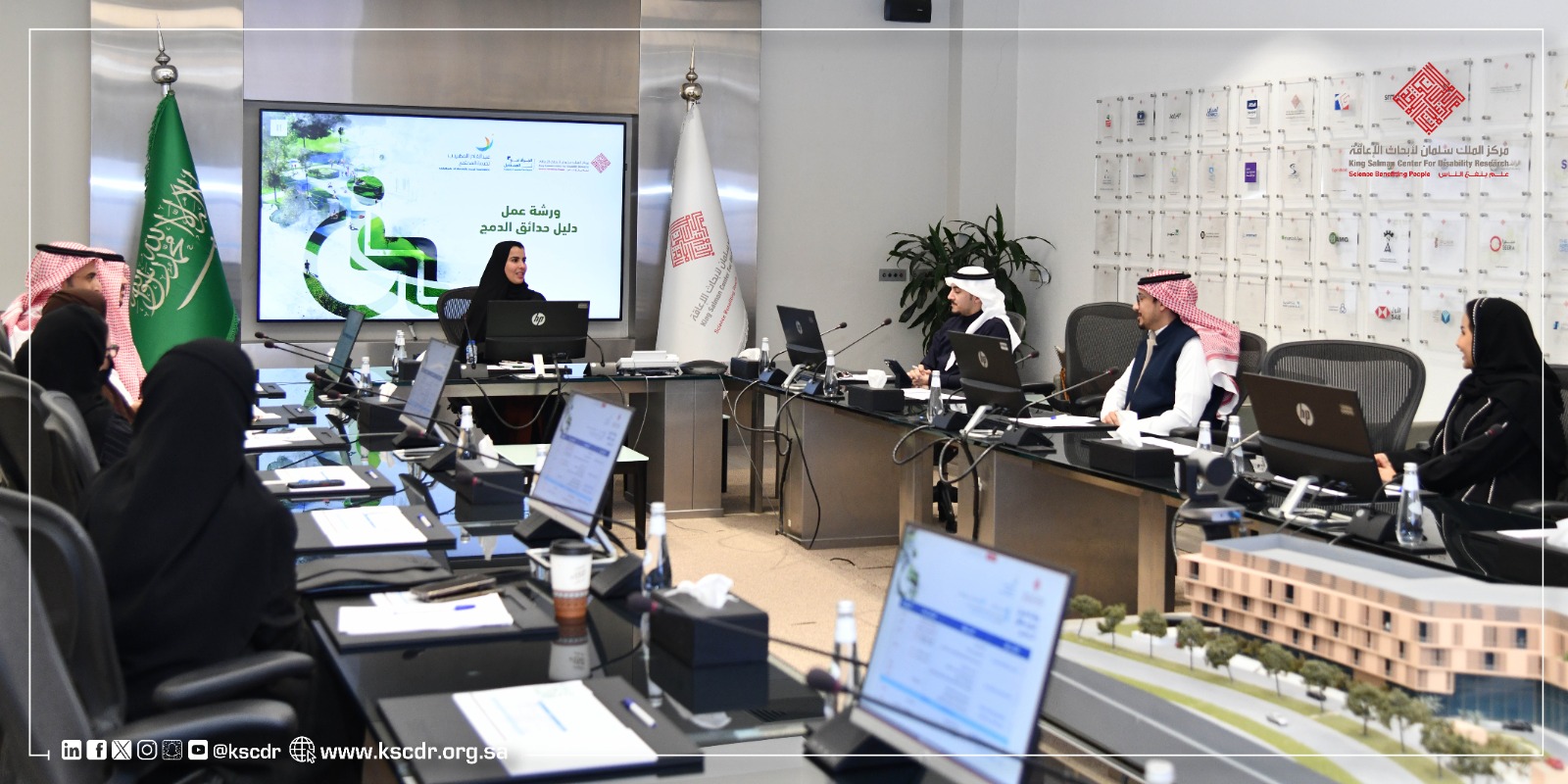
The King Salman Center for Disability Research (KSCDR) organized a specialized workshop titled “Inclusive Parks Guide” at the center’s headquarters and via live broadcast. Relevant entities attended and participated in the event , including the Authority for Persons with Disabilities, the Quality of Life Program, the Building Code, and researchers interested in the subject.
The workshop started with a welcoming speech by Dr. Badr bin Saad Al-Hajhouj, Executive Director of KSCDR, followed by an introductory speech by Ms. Sarah Al-Muhaidib, Executive Director of Abdulqader Al-Muhaidib Foundation for Community Service, who introduced the Inclusive Parks initiative. followed by a presentation on the workshop’s objectives and its significance in developing the Inclusive Parks Guide, delivered by Dr. Ibrahim Al-Tasan and Dr. Abdulaziz Al-Hasan, the guide’s developers.
The workshop, aimed at establishing a reference framework for the Inclusive Parks Guide, featured in-depth discussions on its key aspects, including the preparation methodology, usage mechanisms, and best global practices for designing inclusive parks. It also provided a detailed review of the guide’s components and an analysis of its four fundamental dimensions, along with documentation of developmental recommendations for each.
The workshop concluded with an outline of future steps for completing the guide, which is expected to serve as a primary reference for designing and developing inclusive parks that meet the needs of all individuals and encourage equality and social interaction.
It is noteworthy that the Inclusive Parks initiative is one of KSCDR’s scientific initiatives aimed at strengthening community partnerships and supporting scientific research in the field of disability. It represents a significant step toward achieving the full involvement of children with disabilities in society by providing engaging environments that stimulate social interaction and equal opportunities in play and learning.
 Print
Print
 Add to Favorite
Add to Favorite
 Share
Share




